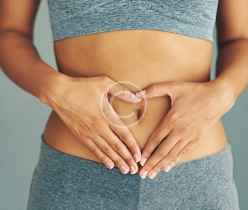There are a number of foods that can affect fertility, both positively and negatively. Some foods that may help improve fertility include:
- Fruits and vegetables. Fruits and vegetables are packed with vitamins, minerals, and antioxidants that are essential for a healthy reproductive system. Some specific fruits and vegetables that may be beneficial for fertility include:
- Berries. Berries are a good source of antioxidants, which can help protect cells from damage. Studies have shown that women who eat more berries may have a lower risk of infertility.
- Green leafy vegetables. Green leafy vegetables are a good source of folate, a vitamin that is important for cell growth and development. Folate is especially important for women who are trying to conceive, as it can help prevent birth defects.
- Citrus fruits. Citrus fruits are a good source of vitamin C, which is an antioxidant that can help protect cells from damage. Vitamin C is also important for the production of collagen, which is a protein that helps support the reproductive system.
- Whole grains. Whole grains are a good source of fiber, which can help regulate blood sugar levels and improve insulin sensitivity. Insulin is a hormone that helps the body use glucose for energy. High levels of insulin can interfere with ovulation, so it is important for women who are trying to conceive to keep their insulin levels in check.
- Lean protein. Lean protein is an important part of a healthy diet for anyone, but it is especially important for women who are trying to conceive. Lean protein helps build and repair tissues, including reproductive tissues. Good sources of lean protein include fish, chicken, beans, and lentils.
- Healthy fats. Healthy fats, such as omega-3 fatty acids, are essential for a healthy reproductive system. Omega-3 fatty acids can help improve sperm quality and motility. Good sources of omega-3 fatty acids include fish, nuts, and seeds.
Some foods that may have a negative impact on fertility include:
- Trans fats. Trans fats are unhealthy fats that can increase inflammation and damage cells. Inflammation can interfere with ovulation and sperm production. Trans fats are found in processed foods, such as fried foods, baked goods, and frozen dinners.
- Sugary drinks. Sugary drinks can increase the risk of obesity, which is a major risk factor for infertility. Obesity can lead to hormonal imbalances and insulin resistance, both of which can interfere with fertility.
- Alcohol. Alcohol can damage sperm and eggs, and it can also increase the risk of miscarriage. It is best to avoid alcohol altogether if you are trying to conceive.
- Caffeine. Caffeine can interfere with ovulation and can also increase the risk of miscarriage. It is best to limit your caffeine intake to 200 milligrams per day or less if you are trying to conceive.
- Processed foods. Processed foods are often high in unhealthy fats, sugar, and sodium. These foods can increase inflammation and damage cells, which can interfere with fertility. It is best to eat whole, unprocessed foods whenever possible.
If you are trying to conceive, it is important to make healthy changes to your diet. Eating a healthy diet can help improve your overall health and well-being, and it can also help improve your chances of getting pregnant.



